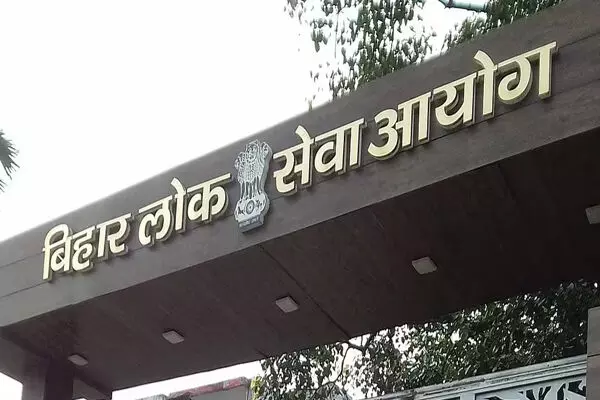The Bihar Public Service Commission (BPSC) has found itself embroiled in controversy after the cancellation of the third phase of the Teacher Recruitment Exam 2024 (TRE 3.0) due to allegations of paper leak. This decision, announced on 20th March, comes in the wake of serious concerns raised regarding the integrity of the examination process.
BPSC Chairman Parmar Ravi Manubhai, speaking to PTI, confirmed the cancellation of the third phase of the examination. The decision was made following mounting pressure and allegations of a paper leak, which had cast doubt on the fairness of the examination process.
Earlier, the BPSC had been hesitant to cancel the third phase despite allegations of a paper leak, citing a lack of credible evidence. However, the Economic Offence Unit (EOU) persisted in its claims that the question papers had been leaked prior to the examination. The EOU’s insistence, coupled with mounting evidence, eventually led to the cancellation of the examination.
The EOU had reportedly received information indicating that the question papers had been leaked, with the perpetrators intending to benefit from the leaked papers during the examination. This prompted the EOU to launch an investigation into the matter.
The EOU’s investigation uncovered damning evidence suggesting that an organized group had gained access to the examination papers before the scheduled date. This revelation cast serious doubts on the integrity of the examination process and raised concerns about the fairness of the selection criteria.
As part of its investigation, the EOU conducted raids in various locations, including Hazaribagh, resulting in the arrest of numerous individuals suspected of involvement in the paper leak. These arrests underscored the seriousness of the allegations and highlighted the need for swift action to address the issue.
In response to the findings of the EOU’s investigation, the BPSC made the difficult decision to cancel the third phase of the TRE 3.0 examination. This decision, while necessary to uphold the integrity of the examination process, has undoubtedly caused inconvenience and frustration for the thousands of aspirants who had prepared diligently for the examination.
The cancellation of the examination raises questions about the efficacy of the measures put in place to prevent such incidents from occurring. It also underscores the need for greater vigilance and oversight in the conduct of examinations to ensure fairness and transparency.
Moving forward, the BPSC must take steps to address the shortcomings in its examination process and implement robust measures to prevent similar incidents from happening in the future. This may involve reviewing and strengthening security protocols, enhancing oversight mechanisms, and improving coordination with law enforcement agencies to prevent and investigate instances of malpractice.
Furthermore, the BPSC should provide timely updates and information to the candidates affected by the cancellation of the examination. Clear communication and transparency will be crucial in maintaining the trust and confidence of the aspirants and the public in the examination process.
The cancellation of the TRE 3.0 examination serves as a stark reminder of the challenges and complexities involved in conducting large-scale recruitment exams. It underscores the importance of maintaining the highest standards of integrity and professionalism in the selection process to ensure that deserving candidates are selected based on merit alone.
As the investigation into the paper leak continues, it is imperative that all those found guilty of wrongdoing are held accountable and appropriate action is taken to prevent similar incidents in the future. Only through swift and decisive action can the integrity of the examination process be restored and public trust regained.
